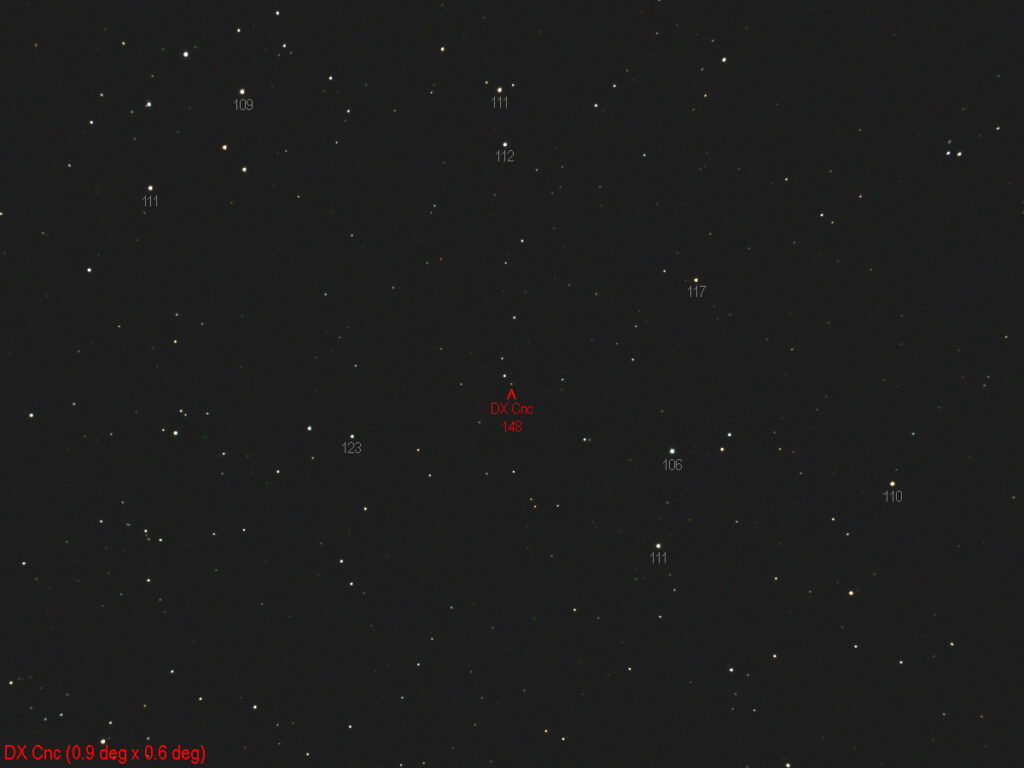
Telescope: Astro-Tech 8” f/8 Ritchey-Chretien, Orion Atlas EQ-G
Camera: QHY 367c Pro, -20C, Baader Mk III MPCC, GSO IR Blocking Filter
Guide scope: Astro-Tech 60mm, ZWO ASI120MM mini, PHD2
Exposure: 9x300sec, gain 2800, offset 50, saved as FITS, dithered every 2 images
Darks: 32, -20C, gain 2800, offset 50, saved as FITS
Flats: 64×0.3sec, Tee shirt flats taken at dusk
Average Light Pollution: Red zone, Bortle 8, poor transparency
Lensed Sky Quality Meter: 18.3
Stacking: Average, 1 sigma clip
White Balance: Nebulosity Automatic
Software: SharpCap Pro, Deep Sky Stacker, Nebulosity, Photoshop
DX Cancri is a red dwarf flare star located 11.8 light years away in the direction of Cancer. DX Cancri has only 9% of the sun’s mass and 11% of its diameter and glows a deep red at magnitude 14.8. These lightweight, faint red stars are among the most common in the Milky Way. They are also amazingly long-lived. Because of their low mass they fuse hydrogen into helium at a relatively slow rate and do so very efficiency, resulting in a life span than can be measured in trillions of years. While they are long-lived, they are not necessarily stable. DX Cancri is a flare star, occasionally and unexpectedly brightening as much as five-fold in an event similar to a coronal mass ejection from the sun. Lastly only a few minutes these events are rare and difficult to observe.
This field measures about 0.6 x 0.9 degrees with north up and east to the right. Selected stars are labeled using the AAVSO format with the magnitude shown to the nearest 0.1 magnitude with the decimal omitted. For example, a magnitude 11.2 star is labeled 112.
Recent Comments